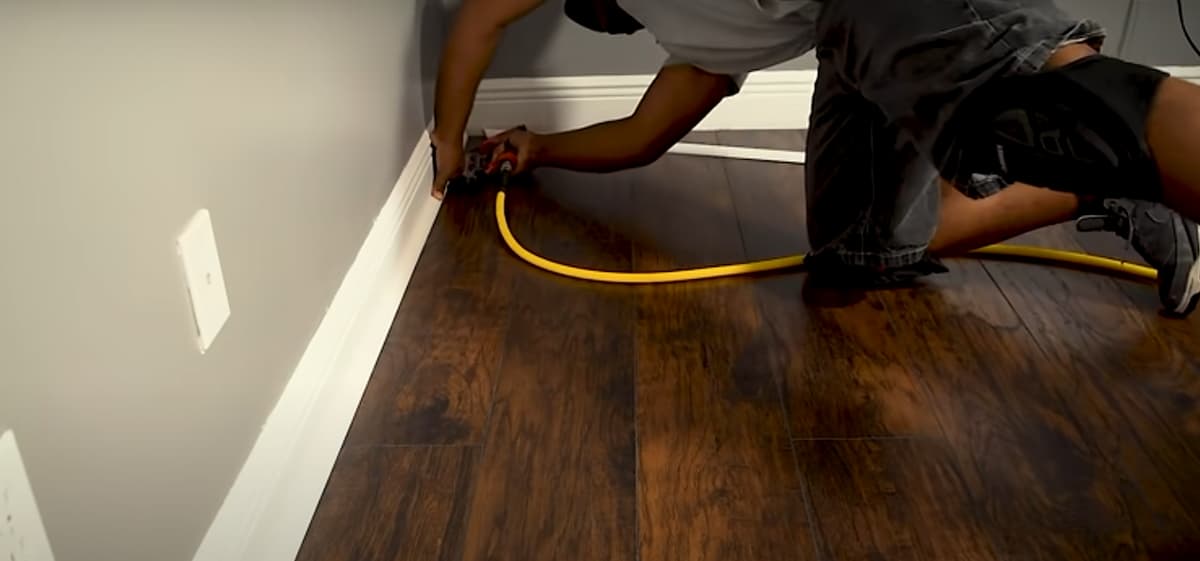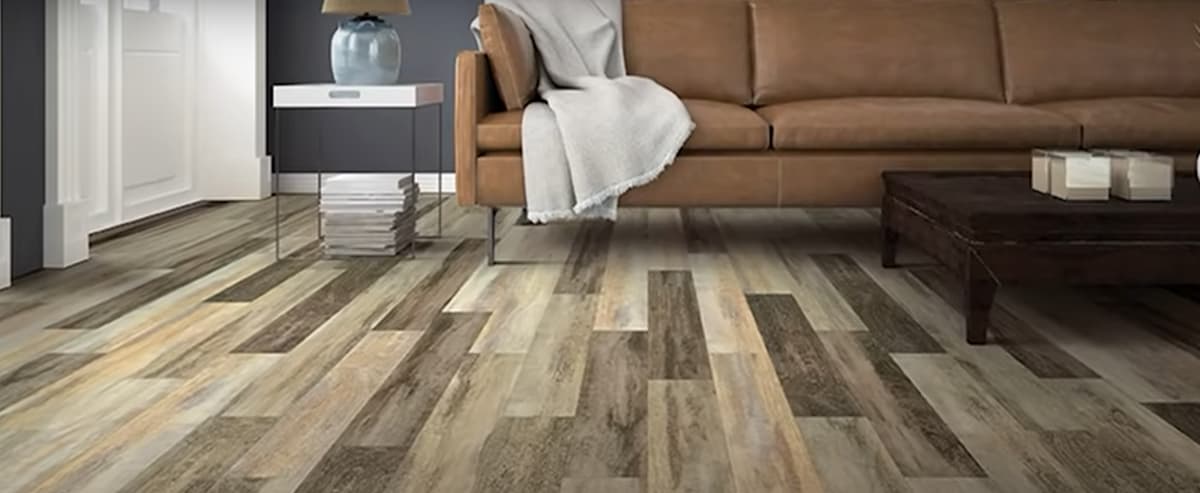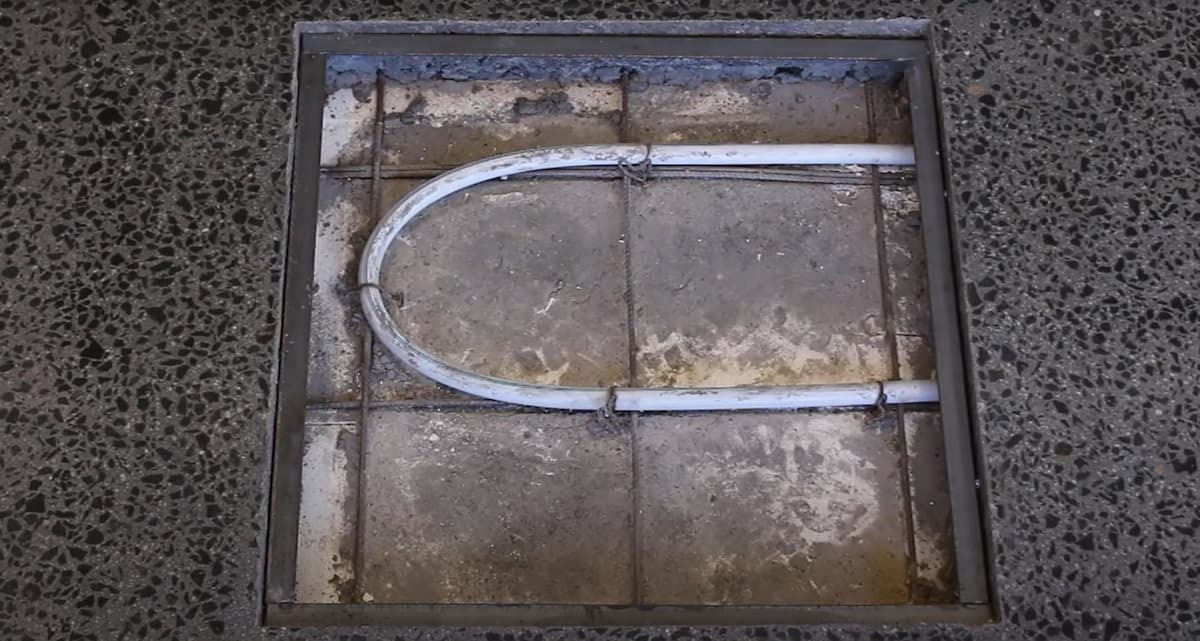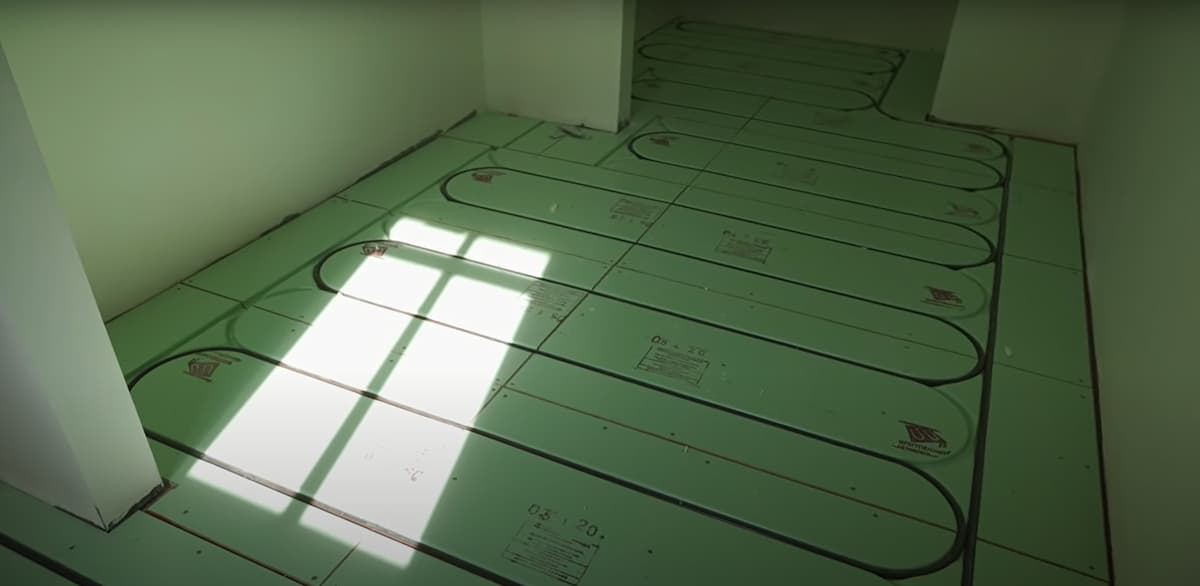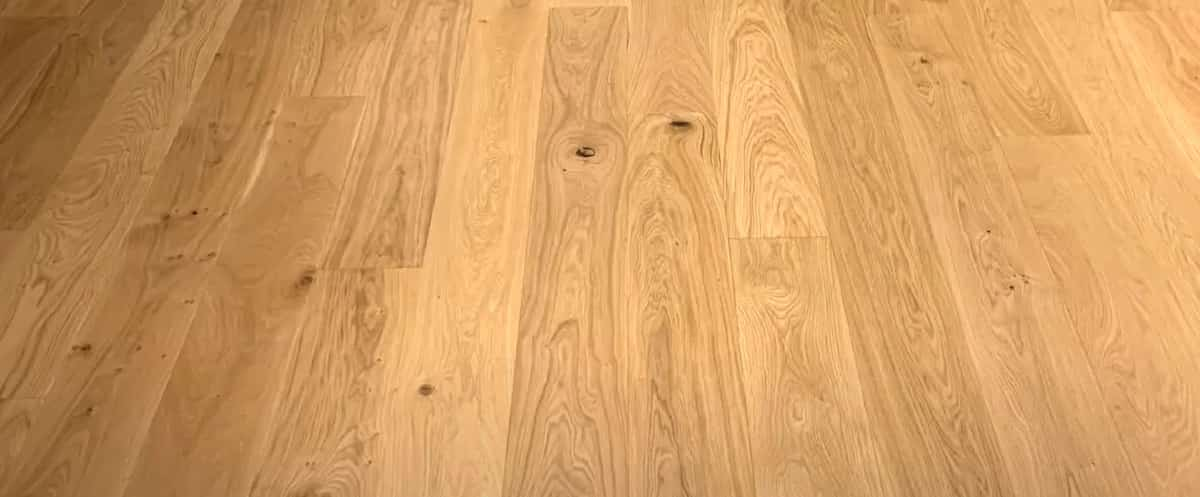
When it comes to designing a house, flooring is one of the things that homeowners often leave out when making purchases. Many do not understand the difference between engineered flooring vs tiles.
This is a mistake that you should avoid. The floor is one of the most important parts of your house, it affects the liveability and comfort of your home.
Engineered wood floors will usually be more expensive than tile flooring. However, they are much easier to install yourself, which means they also save you money in terms of labour costs.
Some engineered floors come in sheet form with perfect edges so there is very little waste and no messy glue lines or grout to deal with once everything has been laid out as desired.
You also want to look for an engineered floor that comes in a wide variety of colours and patterns so you can get exactly what you want for your home. The problem with tile flooring is that due to how each tile is made, it limits the kind of patterns that you can get. Engineered floors come in all kinds of great looking wood grains and colours that make them look like real hardwood, without any of the hassle or added cost. There are so many other advantages to engineered flooring vs tiles, including being easier to install and easy to clean.
Engineered flooring vs floor tiles also comes with a moisture resistance rating as well as resistance to both scratches and dents. This makes them perfect for high traffic areas or anywhere else where there is a lot going on around them.
Because they are more resistant than traditional tile flooring, you will save money on repairs from various kinds of damage over time as well. That’s one of the things that makes engineered flooring vs tiles so attractive. It’s not just a better looking floor, it’s also much more resilient than most of its competitors.
If you are building a new home or renovating an older one, getting some beautiful engineered hardwood floors installed is definitely worth thinking about. You’ll be glad that you did!
Advantages of Engineered Hardwood Flooring vs Tiles
The advantages of engineered hardwood flooring vs tiles are:
- Easy to install
- Easy to clean
- Moisture Resistant
- Scratch and Dents Resistant
- Cost saving repairs due to durability
- No initial large labour costs on installation
- It takes less time to install engineered wood flooring than tile flooring
Disadvantages of Engineered Wood Floors vs Tiles
The disadvantages of installing an engineered floor vs tiles are:
- It’s more expensive than tile flooring
- Only comes in a few types of wood and colours to choose from
- No variety in patterns
So these are some of the drawbacks with traditional hardwood floors; but with any quality brand of engineered wood floors, those issues completely disappear.
Advantages of Tiles vs Engineered Flooring
One of the main advantages of floor tiles is that they are cheaper. You can buy them off the shelf and they’re ready to go. While you will still need a professional to install them, it will cost you less. Tiles also come in many different patterns and designs which makes it more likely that you can find something that fits your style.
Tiles are also very easy to maintain because they do not require any extra care such as varnish or sealant. Tiles are made from natural materials so you don’t have to worry about chemicals in making it look good or handling damage to the flooring. This means that over time, tile floors last a lot longer than engineered floors.
Engineered wood floors can be difficult to install and leaky grout lines can be a pain to clean. They also have very little variety in the style or type of material they can be made from so you’ll end up with an engineered floor that looks more like a laminate than real hardwood (which is usually what people want).
Engineered wood floors can actually warp over time as well which will make it look uneven and affect how safe it is. It’s not uncommon for them to get damaged by pet claws, hammering nails into walls etc causing damage to your new wood floor!
Disadvantages of Tiles vs Engineered Flooring
A disadvantage of tiles is that they are more expensive when factoring in installation costs of labour in Australia. They will need a time to purchase and be fitted by someone professional. This can cost you a lot, as compared with the installation of Engineered flooring.
Tiles come in all sorts of patterns and designs which mean that it’s hard to find what you’re looking for with engineered floors because they only come in one or two types of wood types and designs.
There are many different ways that tiles can be damaged without your knowing like high traffic areas or just bubbling because of heat. It also takes an extra step when installing them to make sure that they are sealed so the water damage doesn’t start happening too quickly.
Pros and Cons of Engineered Hardwood Flooring
Pros – Engineered Hardwood Flooring Benefits
It’s one of the things that make engineered flooring vs tiles so attractive. It’s not just a better looking floor, it’s also much more resilient than most of its competitors.If you are building a new home or renovating an older one, getting some beautiful engineered hardwood floors installed is definitely worth thinking about. Some common benefits of engineered flooring is that they are easier to install (about half the time it takes for tiles) and they have no grout lines. This makes cleaning a breeze and looks much more professional than tile flooring would.
Engineered hardwood floors are made from real wood which means that you can refinish them in the future if they’re scratched or damaged. While this isn’t necessarily an advantage, it’s a benefit of using better quality engineered hardwood vs ugly looking cheap ones which won’t last long anyways!
Installation is so much faster when you are installing traditional flooring vs tiling as well but that’s not all…Maintenance on Engineered Flooring
One of the biggest benefits of engineered floors over tiles is how little maintenance they require. You’t obviously need to clean them but you’re not going to have to buff or seal the flooring. Because they don’t use grout, which is what usually causes issues in other flooring types, it’s much easier to keep your engineered floors looking like new.
Cons of Engineered Flooring
Engineered wood floorings are more prone to moisture damage than traditional hardwood options and are not recommended for areas that experience large amounts of humidity such as kitchens or bathrooms. They can also be expensive considering the amount of material that is wasted from cutting down a tree into planks and planks into smaller pieces.
Home owners should note that because laminate flooring does not come pre-finished, it has no protective layer between the flooring and the sub-floor. This means that you’ll need to seal it before it is installed or else you’ll find your laminate flooring getting damaged very easily.
Concrete floors are often left unsealed (at least in Australia) because they provide a solid base for laminate flooring installation and will not warp over time like plywood did. Laminate may be prone to moisture damage if there is very little sealing done so this should also be considered when looking into engineered hardwood vs tiles if you are planning on installing them over concrete.
It’s recommended that homeowners should use sand from their back yard, just make sure its clean, dry and well graded to get as much dust out of it as possible. You want the concrete surface to be clean and smooth in one direction.
When the concrete is not sealed for laminate flooring installation, it’s called “floating” the floor. Laminate floors are laid right over top of a floating wood sub-floor where there will be no interference with nails or other hardware when you’re attaching it to your original flooring. Dirt and other contaminants can accumulate between the laminate layer and underlying sub-floor so an extra coat of varnish after installation will keep dirt from sinking in too much, which can then be cleaned up very easily.
Types of Flooring for Wet Areas
When it comes to wet areas in your home, tile flooring may not be realistic. You could stick with an engineered hardwood option but you will find that there’s a lot more room for failure in those kinds of applications. If you want to see your investment last then ceramic tiles are by far the best choice.
Ceramic Tile Flooring
Not only is this type of flooring waterproof but it can also withstand large amounts of pressure and is great at repelling stains from oily substances as well making them absolutely perfect for kitchens. Before installation make sure that there won’t be any moisture seeping up through the concrete below because if water makes its way into ceramic tiles it will cause damage over time which cannot easily be repaired.
If you are planning on installing tiles over wood in a wet area then it’s also recommended that you seal the sub-floor with polyurethane varnish before installation. This will make sure that moisture stays out of the flooring but still allow it to breathe so if water does get into your tiled flooring, at least it can dry up properly without causing any major damage.
You may be worried about how much clean up is involved when it comes to ceramic tile floors but don’t fret as there isn’t too much maintenance required for these stylish surfaces. However, they are not highly durable and tend to chip quite easily if you drop something heavy onto them or try to install an appliance directly over them; for instance a freezer or fridge.
When it comes to ceramic tiles, there’s no need for sealing because they’re waterproof but you will still want to clean up spills as soon as possible so that you don’t get grout buildup and the floor can stay nice and polished looking.
There may be some controversy over which type of flooring is better but both engineered hardwood vs tile has their own strengths and weaknesses which are outlined above. Either way, just make sure your flooring is installed properly with the right kind of adhesive so that it withstands any moisture in the air or surrounding area.
If installing new flooring seems a little too daunting then hiring a professional in Sydney, Melbourne, Perth or another city in Australia for laminate installation might also be an option if you’d like to save time and money on a per square metre basis.
Does Engineered Timber have a better Woo Look Than Tiles like Ceramic or Porcelain?
Engineered flooring does have a better wood look than tiles like ceramic or porcelain. The colours on some of the engineered flooring are not the same as it is on tiles. We find that there aren’t as many options for engineered flooring when it comes to tile and size.
Ceramic & Porcelain Tile Flooring Options
A number of the major benefits to ceramic tile flooring is its durability, waterproof properties, and low maintenance needs. Ceramic tiles are very resistant to stains which make them perfect for kitchens and bathrooms and they can withstand large amounts of pressure so they’re a great option for high traffic areas.
When it comes time to clean up after spills you’ll only need to use mild soap and water which will work for most spills in your ceramic tiled area but if it’s anything more significant than that you may want to consult a professional.
Porcelain tiles are also a great option for wet surfaces as they can withstand the moisture without breaking down like other tile options. They can be polished which makes them easy to clean and gives them a nice clean finish.
Does Engineered Flooring look like Natural Wood?
Engineered flooring does have a better wood look than tiles like ceramic or porcelain. The colours on some of the engineered flooring are not the same as it is on tiles. We find that there aren’t as many options for engineered flooring when it comes to tile and size.
Ceramic & Porcelain Tile Flooring Options
A number of the major benefits to ceramic tile flooring is its durability, waterproof properties, and low maintenance needs. Ceramic tiles are very resistant to stains which make them perfect for kitchens and bathrooms and they can withstand large amounts of pressure so they’re a great option for high traffic areas.
When it comes time to clean up after spills you’ll only need to use mild soap and water which will work for most spills in your ceramic tiled area but if it’s anything more significant than that you may want to consult a professional.
Porcelain tiles are also a great option for wet surfaces as they can withstand the moisture without breaking down like other tile options. They can be polished which makes them easy to clean and gives them a nice clean finish.


